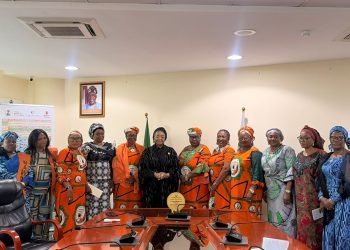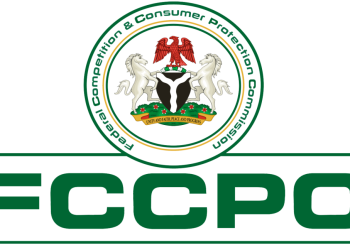By Nkechi Eze
The National Agency for Food and Drug Administration and Control (NAFDAC) has taken a decisive step in Nigeria’s fight against counterfeit and substandard medical products with the hosting of a two-day sensitisation and awareness workshop in Abuja. Held at the Barcelona Hotel, Wuse II, on 12th and 13th November 2025, the event brought together healthcare stakeholders, regulators, and professional associations to engage with three pioneering initiatives aimed at safeguarding public health: the NAFDAC Green Book, the Pharmaceutical Products Traceability Project, and the NAFDAC Pediatric Regulations.
In her keynote address, Professor MojiSola Adeyeye, Director General of NAFDAC, highlighted the persistent menace of substandard and falsified medical products, describing them as a grave threat to human life and dignity. She noted that these products, often introduced by unscrupulous actors seeking profit, continue to challenge public health across Nigeria, as in many low- and middle-income countries. Professor Adeyeye underscored NAFDAC’s unwavering commitment to combating these threats through a combination of public education, media engagement, regulatory oversight, and the deployment of cutting-edge technologies including MAS, Truscan, and Minilab.
Professor Adeyeye explained that despite the agency’s extensive efforts, counterfeiters have become increasingly sophisticated, necessitating a shift toward innovative approaches. The workshop was therefore designed to sensitize stakeholders and provide hands-on training on three critical initiatives. The Green Book was presented as an online resource enabling healthcare providers and consumers to verify the registration status of medical products, confirming authenticity and protecting patients from fake or substandard medicines. The Pharmaceutical Products Traceability Regulations, 2024, which provide a legal framework for tracking drugs across the supply chain, were highlighted as a pioneering system, making Nigeria the first in Africa and the second globally to adopt such technology. Professor Adeyeye recalled that during the COVID-19 vaccine rollout, the traceability system enabled rapid identification and recall of defective batches within 24 hours, and she noted its phased implementation across public health commodities, narcotics, and maternal, newborn, and child health products. Finally, the Pediatric Regulations, 2024, were emphasized for their critical role in ensuring that medicines designed for children meet the highest standards of quality, safety, and efficacy, recognizing the unique healthcare needs of the nation’s youngest population.
The Director General concluded by stressing that the fight against substandard and falsified medical products is a collective responsibility. She urged all stakeholders in the healthcare space to support the initiatives, highlighting that through collaborative effort, every medicine in Nigeria can be made safe, effective, and traceable, thereby safeguarding the health of citizens.
Delivering a goodwill message, Comrade Jama D. Medan, Chairman of the National Association of Nigeria Nurses and Midwives (NANNM), FCT Council, praised the workshop as a timely and laudable initiative. He highlighted the pivotal role of nurses and midwives in healthcare delivery, noting that their understanding of traceability systems, environmental health measures, and child-focused policies is essential to improving patient care. Comrade Medan urged participants to embrace the knowledge shared during the workshop, learn, network, and translate these insights into meaningful actions within their workplaces and communities, reinforcing transparency, accountability, and better health outcomes.
The workshop successfully created a platform for information sharing, professional capacity building, and engagement with cutting-edge regulatory tools, reflecting NAFDAC’s dedication to protecting public health, promoting compliance, and enhancing the quality of healthcare services in Nigeria.
















